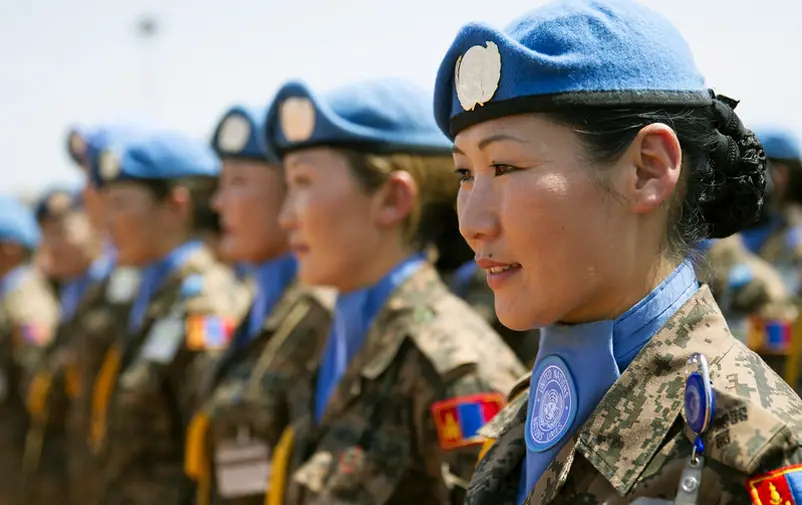
Photo: UN Photo/Martine Perret
The agreement on a new civilian compact is an important part of the action plan to reinforce the EU’s common security and defence policy, the Strategic Compass. Among other things, it involves greater investment in the EU’s civilian crisis management capabilities and increased collaboration with partners.
Several thousand men and women are serving in 13 civilian missions in Europe, Africa and Asia to create a safer world. They monitor and report on how conflicts develop and strengthen countries’ capabilities to drive democratic reforms to build states that are governed by law, with support to the police and the rule of law.
“The new civilian compact is about reinforcing the civilian part of the EU’s crisis management capabilities and creating effective missions that are more flexible and robust, as well as better prepared to meet future challenges,” says FBA’s Director General Per Olsson Fridh, adding that the Swedish presidency has done a fine job in getting the new agreement together.
The civilian compact will also increase the EU’s opportunities for action in a geopolitical environment that is marked by Russia’s unprovoked and unlawful war of aggression against Ukraine. With the new civilian compact, the EU is better equipped to address today’s security threats and challenges.
“The EU is undertaking to put a clearer focus on the civilian crisis management missions, partly by discussing these at ministerial level annually. It will also be possible to get a clearer idea of what effects the missions have had in the host country through regular evaluations,” says Åsa Claesson, EU coordinator at FBA, who adds that the agreement is expected to help ensure that the EU's crisis management capabilities will take real steps forward over the next four years.
The EU also plans to be able to quickly deploy 200 civilian experts within a month when needed in complex environments.
“The EU aims to invest further resources to increase the number of experts seconded to the civilian crisis management missions and to achieve the objective of at least 40 per cent seconded women,” says Åsa Claesson.
“FBA has stressed the importance of a well-functioning leadership that also leads to increased gender equality in the missions and also the necessity of a good work environment. The agency has also been working to ensure that the EU's civilian missions will analyse climate-related security threats and how conflicts affect the younger members of the population,” she continues.
The agreement on the civilian compact also contains measures to strengthen the EU headquarters for civilian missions and measures to strengthen the resilience of host states and related missions in crisis management. There are also plans for how other tools that the EU has at its disposal for creating integrated efforts can reinforce civilian crisis management missions and create synergies, as well as commitments on collaboration with host states’ justice and interior ministries and other relevant bodies.
MORE FROM HOME
What does research tell us about strategic civil-military leadership in UN integrated missions? The recent FBA research brief "Mission Leaders: An Evidence-based Assessment” presents seven policy recommendations.
2025-07-01 13:34FBA has both increased and adapted its work in Ukraine in the wake of Russia's invasion.
FBA in UkraineKlara Grenhagen works as a specialist at FBA's Africa unit with a focus on dialogue, reconciliation and peace processes.
More about our expertsFBA is part of Sweden’s development aid within the area of peace and security
Read more about the countries where we work